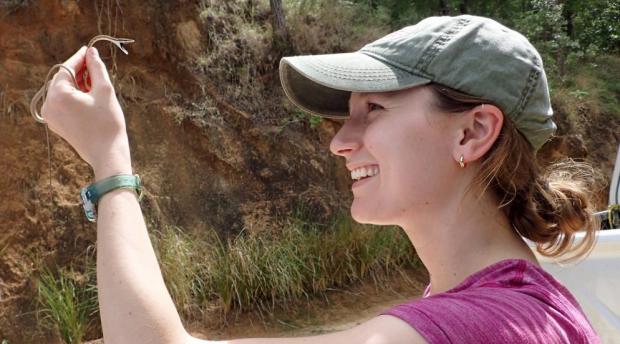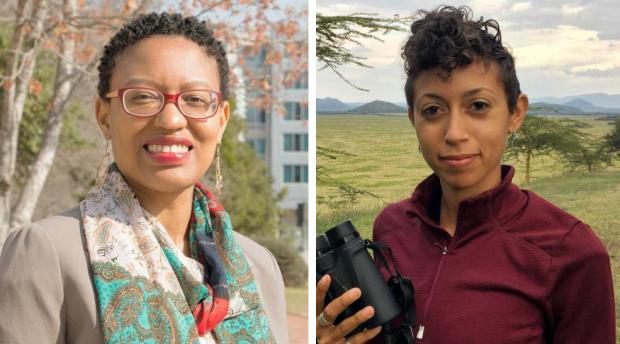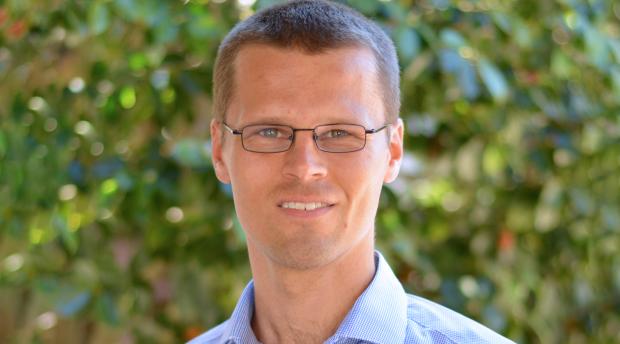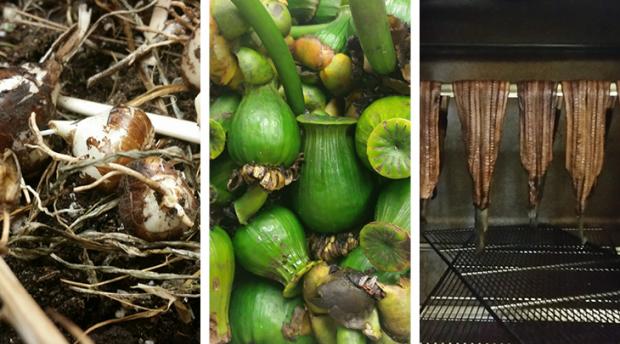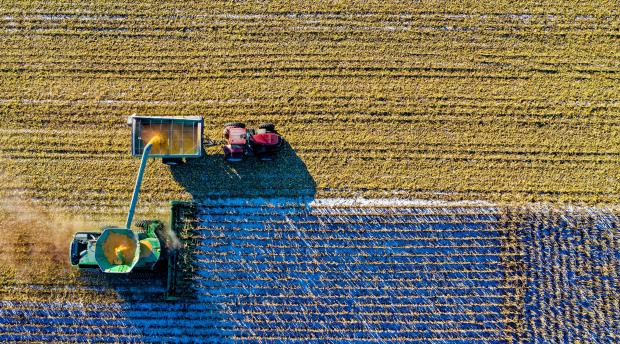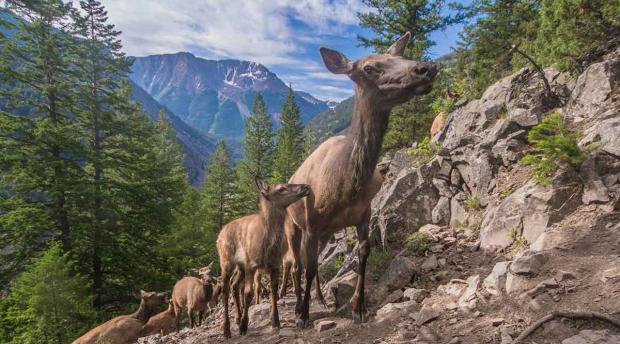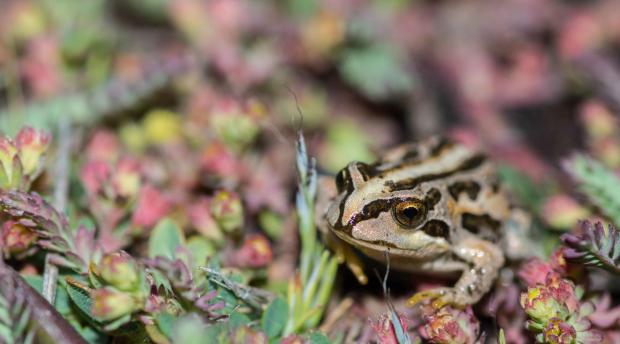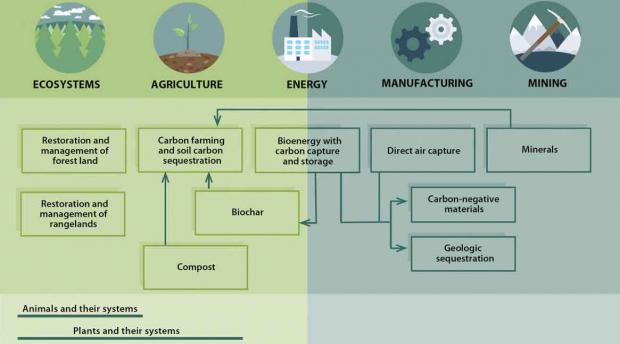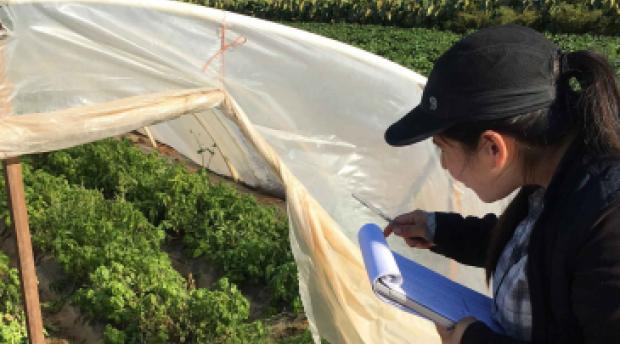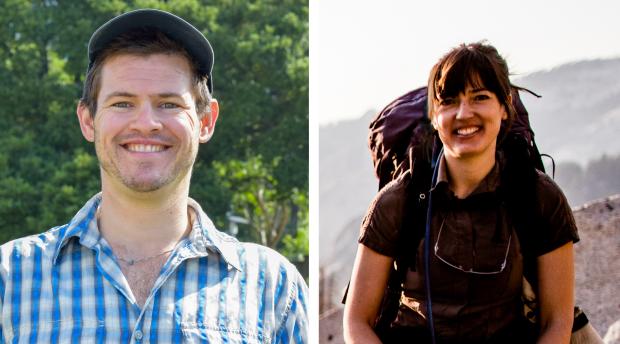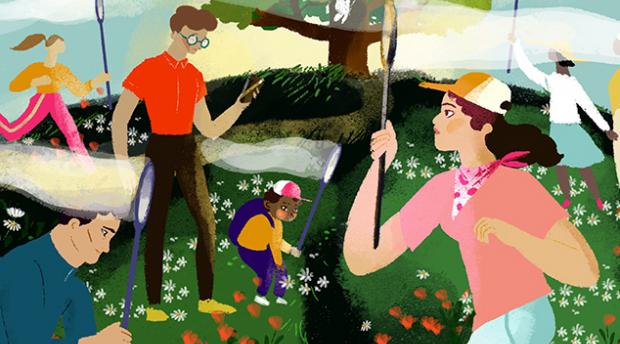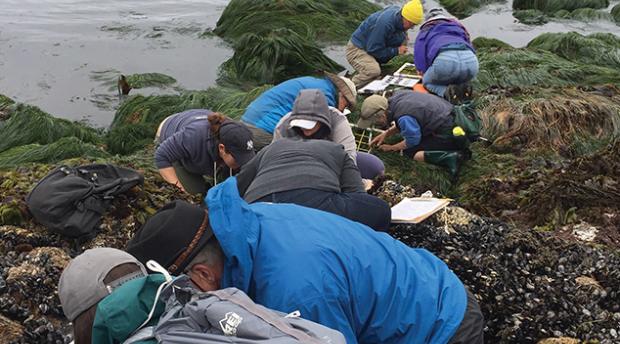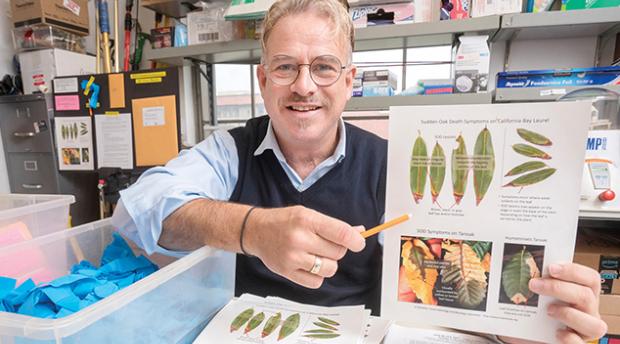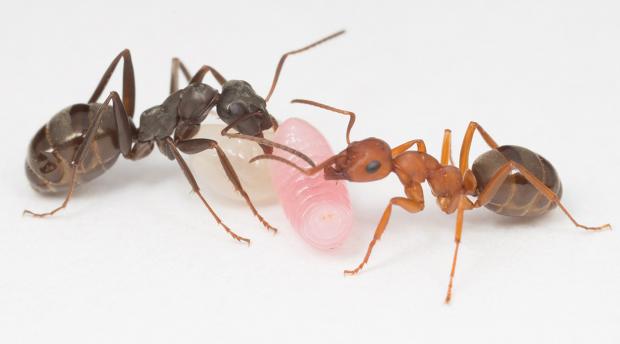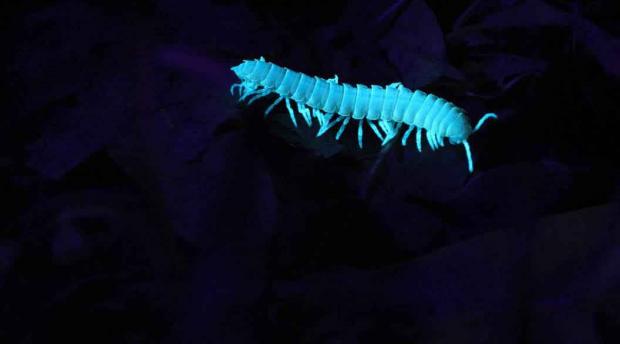The Herpetologist League interviewed gradute student Erin Westeen on her field work and journey to Berkeley.
Two graduate students awarded Switzer Fellowships
Frances Roberts-Gregory and Christine Wilkinson recieved this award for their work to improve the environment and for showing leadership in their fields.
Jonas Meckling receives Emerging Young Scholar Award
This award recognizes a researcher making notable contributions to the field of science, technology, and environmental politics.
ESPM scientist speaks to Congress on human-caused climate change
Patrick Gonzalez discussed the impacts of increased wildfire, melting glaciers, and habitat shift on U.S. national parks.
Restoring access to Native foods can reduce food insecurity
UC Berkeley and four California and Oregon tribes collaborated on a comprehensive food security assessment.
Eat Local: Sustainability linked to regional trade
New research model highlights globalization’s connection to declining stability of agricultural resources.
What drives Yellowstone’s massive elk migrations?
Elk are adapting to changing climate cues, but migratory shifts may create ripple effects throughout the region.
Op-ed: How gendered language leads scientists astray
Postdoctoral fellow Max Lambert and PhD candidate Melina Packer publish an op-ed in the Washington Post.
ESPM experts can lead on carbon dioxide removal
Daniel Sanchez and Whendee Silver discuss carbon dioxide removal technologies the latest edition of California Agriculture.
Program highlight: Graduate Certificate in Food Systems
The program provides graduates with skills that can be applied across diverse and emerging food systems.
Alumna, postdoc awarded Smith Fellowship
Joan Dudney and Max Lambert have been selected for David H. Smith Conservation Research Fellowships.
Strawberries, succulents and saplings make unique ‘living diplomas’
For conservation and resource studies graduates, paper diplomas just won’t do.
Plastic: The Scourge of Cities Becomes a Resource
The Wall Street Journal featured professor Kate O'Neill in their video on the future of recycling.
The Collaborative Net
ESPM researchers are working with citizen scientists to gather data around the Bay Area and across the globe.
When Science is Social
A Q&A with Heidi Ballard, PhD ’04, who is founder and faculty director of UC Davis’s Center for Community and Citizen Science.
Leading the citizen science contagion
Coopertive Extension Specialist Matteo Garbelotto is on a mission to enlist citizen scientists to stomp out sudden oak death in California.
Social Insects
Neil Tsutsui's lab invites the public to join the scientific process through citizen science and outreach projects.
This millipede and beetle have a toxic relationship
Research from alumnus Brandt Weary and professor Kipling Will has been featured in KQED’s Deep Look video series.
Susan Hubbard elected to American Academy of Arts and Sciences
Hubbard is a leading expert in quantifying the hydrological and biogeochemical behavior of environmental systems.
Students recognized for Herbicide-Free Cal campaign
Mackenzie Feldman and Bridget Gustafson are featured on a list of environmentalists “making a difference.”


